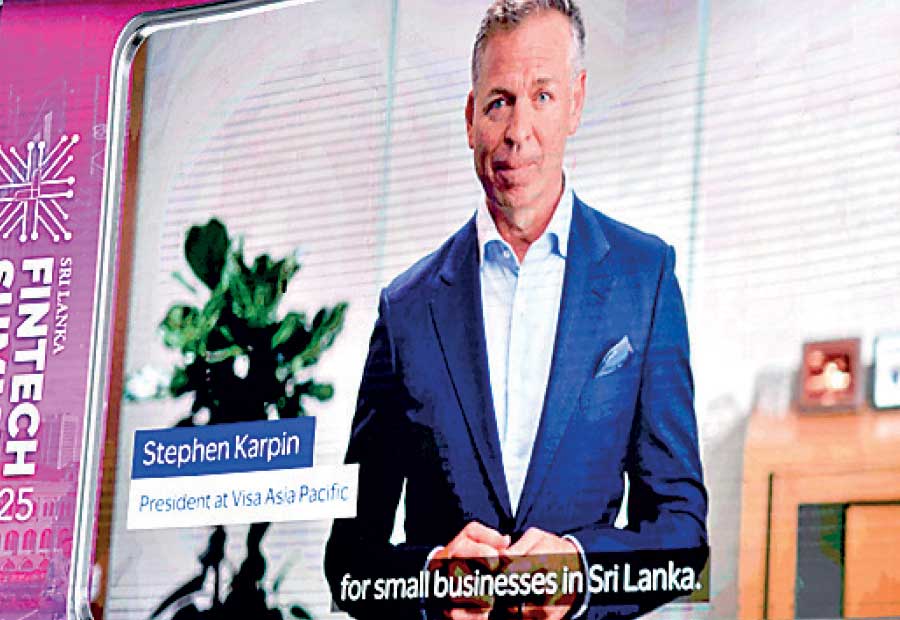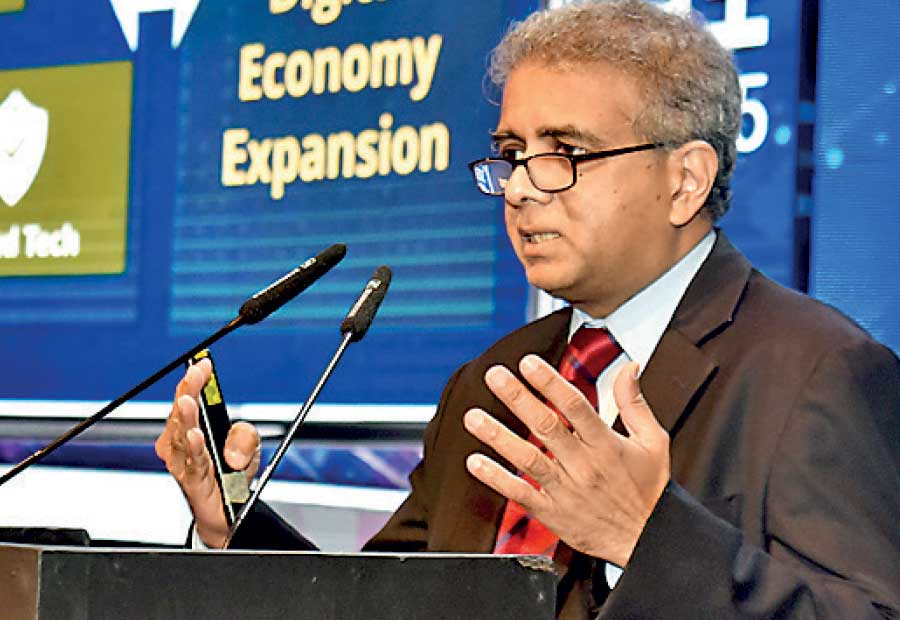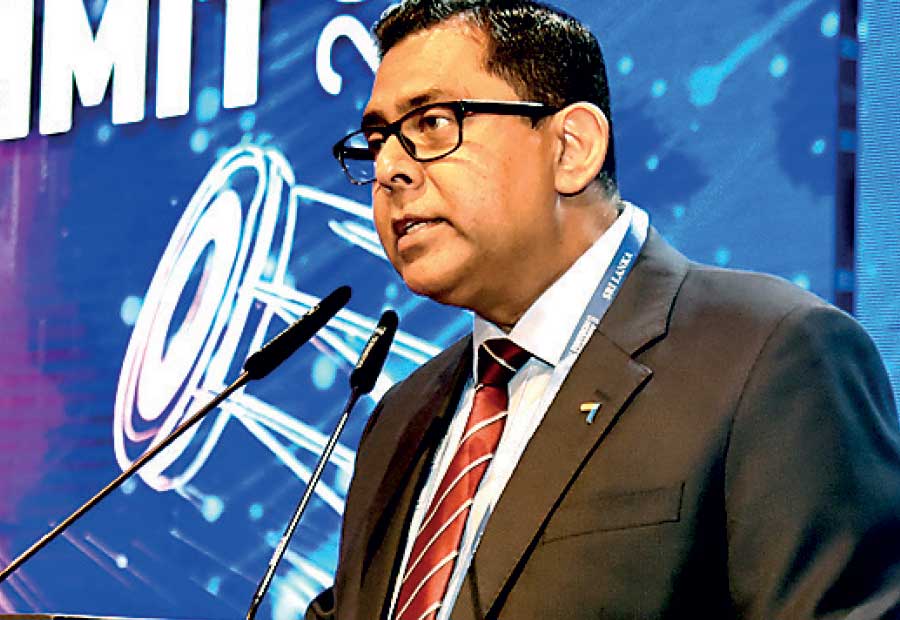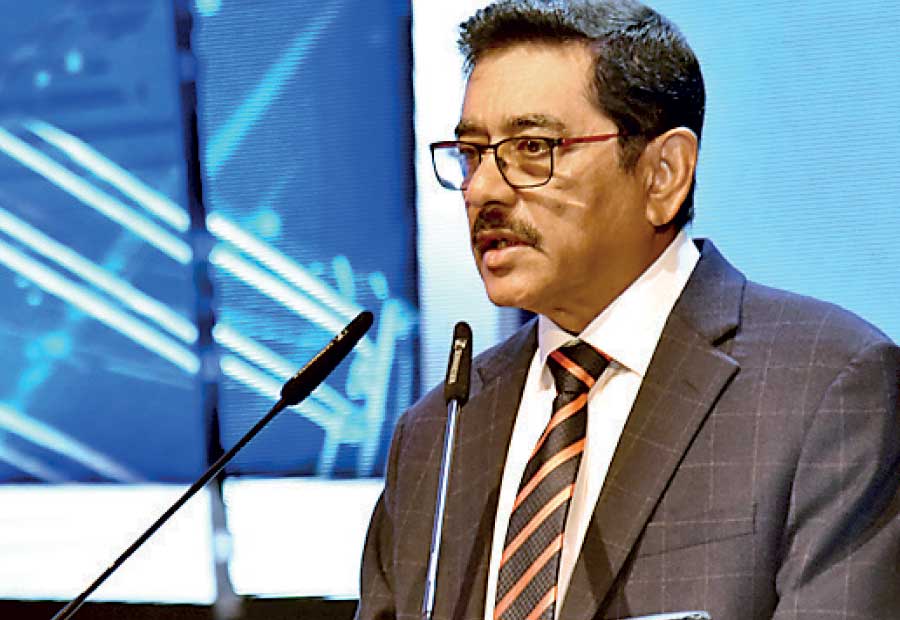Monday Feb 23, 2026
Monday Feb 23, 2026
Thursday, 25 September 2025 05:32 - - {{hitsCtrl.values.hits}}

Visa Asia Pacific President Stephen Karpin

Chief Presidential Adviser on Digital Economy Dr. Hans Wijayasuriya

HNB MD/CEO Damith Pallewatte

CBSL Governor Dr. Nandalal Weerasinghe
By Devan Daniel
Sri Lanka is ready to take the lead in shaping the future of digital commerce, Visa Asia Pacific President Stephen Karpin declared yesterday at the inaugural Sri Lanka Fintech Summit 2025.
He said this speaking virtually to the two-day event at the BMICH where Visa had the global unveiling of its latest payments solution Visa Accept.
“This is not just a launch, it is a statement to the world that Sri Lanka is ready to take the lead in shaping the future of digital commerce,” he said, calling for continued collaboration to advance the country’s progress.
“Today marks a significant milestone in Visa’s journey and an even bigger step forward for small businesses in Sri Lanka.”
Across the country there are over one million registered small and medium businesses, with many more informal sellers, which together make up more than 75% of businesses and contribute over half of GDP.
He noted that many micro and home-based entrepreneurs remain excluded from formal payment systems. “They often can’t accept secure digital payments and that limits their ability to reach new customers, to grow their business and to formally participate in the economy,” he said.
Visa Accept, the new service launched in Colombo, will allow any business with only a mobile phone to accept seamless and secure digital payments.
“It is easy, it is inclusive and it opens the door to new opportunities for growth,” Karpin said.
“The Visa innovation that we are bringing is a game changer for micro and small entrepreneurs, empowering them to go digital easily, reach more customers and to participate in the formal economy and thrive even in remote and rural heartlands of Sri Lanka.”
The Sri Lanka Fintech Summit 2025 kicked off yesterday at the BMICH with over 600 confirmed participants and more than 25 speakers from Sri Lanka and abroad.
The two-day event brings together leaders from Government, financial institutions, and global fintech innovators to accelerate the country’s transition toward a digital economy by 2030, with themes spanning AI, blockchain, cross-border payments, and financial inclusion.
Chief Presidential Adviser on Digital Economy and ICTA Chairman Dr. Hans Wijayasuriya said fintech will play a decisive role in lifting national growth, estimating $ 15 billion in value creation.
He set a target to expand the digital economy from about 3% of GDP toward 15% over the next decade and outlined a Digital Public Infrastructure blueprint featuring a 100% trusted digital ID, a national data exchange and interoperable payments.
He warned of a growing “scam economy,” citing more than $ 1 trillion siphoned globally in 2024, and said fraud tech, cyber security and regtech must underpin trust.
Summit Chair and HNB CEO/Managing Director Damith Pallewatte urged banks, regulators, fintechs and investors to close the gap between strong connectivity and a lagging payments ecosystem.
He pointed to CEFT enabling 24x7 interbank transfers and reaching 200 million transactions worth Rs. 17 trillion in 2024, roughly half of GDP, while LankaClear processed 400 million online transactions, up 50% year on year.
He identified four obstacles to mass adoption: fragmentation, low usage frequency, limited data sharing and a deficit of trust and literacy, and framed priorities around “usage, access and trust.”
Central Bank Governor Dr. Nandalal Weerasinghe said digital financial infrastructure is “not a cost, it’s a net benefit” if gains are fairly shared among stakeholders. He cited lower cash-handling costs for the system and time and money saved for consumers.
The Central Bank’s Fintech Regulatory Sandbox, launched in 2022 and further relaxed this year, is intended to let innovators test products in a controlled environment, while a new National Payment System roadmap seeks to strengthen the role of fintechs without compromising stability and consumer protection. “The Central Bank will continue its commitment to provide regulatory guidance to minimise risks and build trust,” he said.
– Pix by Upul Abayasekara